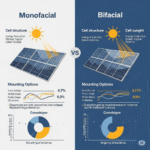Recent Post

The Exciting Future of Smart Home Integration with Solar Panels and IoT
In an age of technological advancement, the combination of smart…
Unveiling the Future of Energy Storage: Solar Power Revolution
Solar power remains a light of hope for a sustainable…
Unlocking the Potential of Hybrid Energy Systems: Bridging Renewable Opportunities
In the search for a more sustainable future, the globe…
